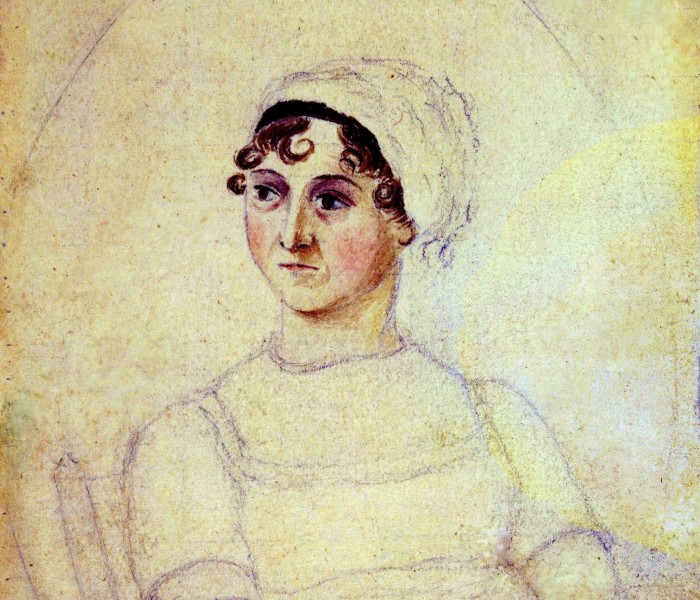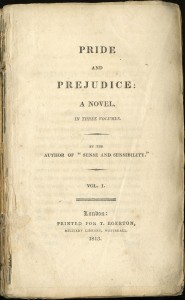In the last two centuries, millions of scholars, readers and romance enthusiasts have swooned over the pages of Jane Austen’s Pride and Prejudice. But when she first published the novel 1813, Austen was far from being the popular, best-selling novelist she’s known as today.
“The rest is history,” said Crystal Lake, Ph.D. assistant professor of English. “Pride and Prejudice has since become a touchstone text in Western culture; only Shakespeare seems to rival Austen in terms of name recognition in the literary world.”
This semester, Lake will be celebrating the 200th anniversary of Pride and Prejudice’s publication by teaching a course at Wright State appropriately titled, 200 Years of Pride and Prejudice.
“I think that because Pride and Prejudice is such a beloved and popular story, many students will be drawn to the course, even if they haven’t already read and fallen in love with the novel,” said Lake. “At the very least, they’ve enjoyed the movies and TV series.”
Having always been intrigued by Austen’s satirical bent and subtle wit, Lake believes that Austen’s novels are so much more than fairy tale romances. “They are insightful and often wildly radical critiques of the conventions of the culture in which she lived and wrote,” said Lake.
Inspiration to create this course occurred while Lake spent her last summer working as a research fellow at the Chawton House Library in the village of Southampton, England. Known as a center for studying rare works by early women writers, the Chawton House Library is the capital for all things Jane Austen.
According to Lake, “The whole village was gearing up to celebrate the bicentennial anniversary of the publication of Pride and Prejudice. I thought that it would be a great opportunity for Wright State to join the festivities.”
The course will benefit not just those pursuing literature, but even those who simply appreciate a good book.
“Students get the chance to really slow down and read carefully, paying particular attention not only to what happens in the novel or what the characters are like, but also to how the novel is a carefully crafted work of art,” said Lake.
The first half of the semester will be spent reading and analyzing Pride and Prejudice. The remainder will be spent drawing cultural parallels between the text and other publications from Austen’s time. Assignments in the course will require students to do rigorous literary research, and, according to Lake, to bring that research to a larger community outside of the classroom.
The Wright State celebration of Pride and Prejudice’s anniversary doesn’t stop with the course.
“The Regency Ball is the culminating event of a three-day celebration of the bicentennial of Pride and Prejudice to be hosted by Wright State in October of 2013,” said Lake.
The celebration will begin with a symposium featuring presentations by Austen researchers. There will also be a theatrical performance of Pride and Prejudice, and numerous opportunities for attendees to engage in 19th century festivities.
“The ball is a unique event because it will be historically immersive,” said Lake. “Guests will listen to the same music Jane Austen listened to, learn the dances she would have done and enjoy the food and entertainments that would have been popular at the kinds of balls she might have attended.”
Joseph Gibbons, a student enrolled in 200 Years of Pride and Prejudice, was eager to take Lake’s course and to learn about the Regency Ball.
“I think this is a great way for the humanities to reach out to the Dayton community and increase the community’s awareness of how much of a driving force Wright State truly is,” said Gibbons.
The bicentennial celebration is supported by funding from the Ohio Center of Excellence in Collaborative Education, Leadership and Innovation in the Arts (CELIA) at Wright State University.
For more information on the Regency Ball, contact Crystal Lake at crystal.lake@wright.edu.



 Wright State receives $3 million grant to strengthen civic literacy and engagement across Southwest Ohio
Wright State receives $3 million grant to strengthen civic literacy and engagement across Southwest Ohio  Fitness Center renovation brings new equipment and excitement to Wright State’s Campus Recreation
Fitness Center renovation brings new equipment and excitement to Wright State’s Campus Recreation  Wright State University settles civil lawsuit against WSARC, now doing business as Parallax Advanced Research Corporation
Wright State University settles civil lawsuit against WSARC, now doing business as Parallax Advanced Research Corporation  Wright State senior paints a new path through fine arts internship
Wright State senior paints a new path through fine arts internship  Wright State recognizes Nursing Professor Kim Ringo for advancing international student success
Wright State recognizes Nursing Professor Kim Ringo for advancing international student success 